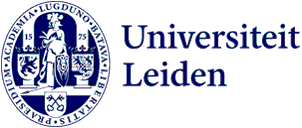
Keti Koti in Leiden: 'Here, too, slavery is all around us‘
Many traces of the city's slavery history can be found in Leiden but the public isn't always aware of them. The initiators of 'Mapping Slavery in Leiden' want to change this with guided tours and street markers. Representatives of the University and other Leiden institutions will be giving the first guided tour on Keti Koti, a celebration on 1 July marking the abolition of slavery in Suriname.
‘Although Leiden doesn't have a large port, you can still see the traces of slavery on its streets,' says Max Urai as he walks along the Rapenburg canal. 'But you do need to know about it.' This young Leidener will give guided tours of the city, together with another guide, Miquela Neyda. Various plantation owners lived on Rapenburg and some even brought their African servants back with them. Urai: ‘Many people think there was no slavery on Dutch soil, but that isn't true. It played a much bigger role in everyday life than people often realise.'

The role played by Leiden citizens in the slave trade
In recent years there has been growing awareness that a city like Leiden is also firmly rooted in the slavery past. In 2017, Leiden historians Gert Oostindie and Karwan Fatah-Black published the book Sporen van de Slavernij in Leiden ('Traces of Slavery in Leiden'), which brought this painful history more to light. Prominent Leideners were involved in the Atlantic slave trade and Leiden textiles were exchanged for enslaved Africans. These enslaved Africans were transported to plantations in the Dutch colonies and the sugar and coffee from these plantations were shipped to Europe and consumed here. Leiden University had a number of vocal supporters and opponents of slavery, but the historians tell us that the university, municipality and churches were for centuries indifferent to slavery.
Markers in the city
It is thanks in part to this book and the national Mapping Slavery initiative that the idea for Mapping Slavery in Leiden was born, says Urai. ‘We want to place metal markers at sites that remind us of the city's slavery past.' Urai and Neyda will give the first guided tours on Keti Koti, the remembrance day on 1 July, to representatives from the University and other Leiden institutions. These will include Jeroen Duindam (academic director of the Institute for History), Jos Damen (Department Head at the African Studies Centre) and Tanja Elsgeest (director of the Lakenhal). The walking tour will point out to visitors the homes of former plantation owners, and will show them museums with colonial collections and various other academic locations.

Thesis on slavery and Christianity
Urai refers to the Academy Building and quotes the remarkable example of Jacobus Capitein, a former enslaved person from Ghana. Capitein was taken as a personal servant by a ship's captain and wrote a thesis in which he drew the conclusion that Christianity and slavery were comparable because they both countered poverty. 'The question is how much freedom Capitein had in writing this thesis. And there are so many more remarkable stories that deserve to be told,' says Urai.
Reflecting on Keti Koti
There are students and staff within the University who are calling for more attention to be paid to the slavery history and Keti Koti, the commemoration of the abolition of slavery in 1863. Public Administration student Levi Ommen is one such person. She was chair of the Afro Student Association and is now active for Black Lives Matter The Hague. She explains: ‘Keti Koti is often regarded as a Surinamese and Caribbean celebration, while it is an important moment in Dutch history that we should all reflect on. The Netherlands owes its wealth and prosperity in part to the Dutch East India Company and the Dutch West India Company, both of which traded in enslaved people. Abolition was not the end of the colonial past, but it was a very important turning point.’
-

Miquela Neyda and Max Urai -

Miquela Neyda and Max Urai -

Miquela Neyda and Max Urai -

Miquela Neyda -

Miquela Neyda and Aya Ezawa
In March this year, Ommen was a panellist at a university meeting about the traces of slavery and she holds talks with Leiden officials about combatting racism. She applauds initiatives such as Mapping Slavery in Leiden. ‘It is important that Leiden's slavery history is visible in the city. There are a lot of people who say: ''It's nothing to do with me; my ancestors weren't slave traders.'' That may well be so, but the effects of the slavery past are still evident in society today. This is why it's important to pay more attention to this issue, including within the University.'
The Executive Board endorses this view. Annetje Ottow, President of the Board, commented on the slavery history at the same meeting that it is time to pay more attention to the University's history on slavery and the colonial past. 'The University can make an important contribution by offering new and critical insights and promoting an open discussion both within and outside the University,' she said.
If you are interested in a guided tour or would like to know more about this initiative, you can send en email to mappingslaveryinleiden@gmail.com
Text: Linda van Putten
Image: Eelkje Colmjon
